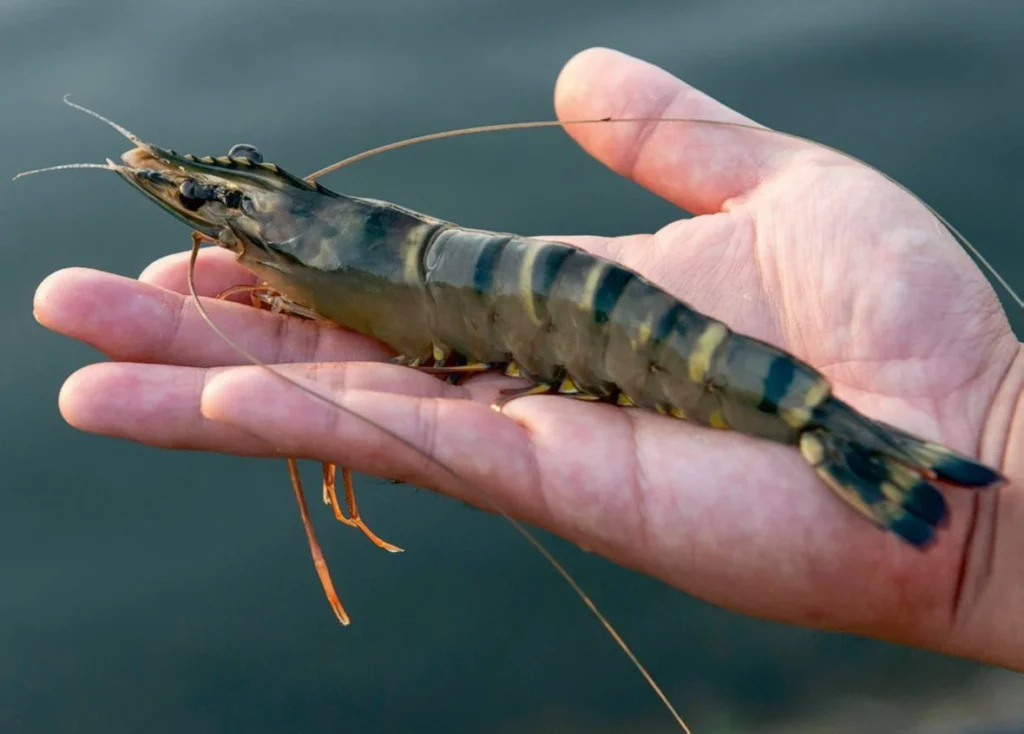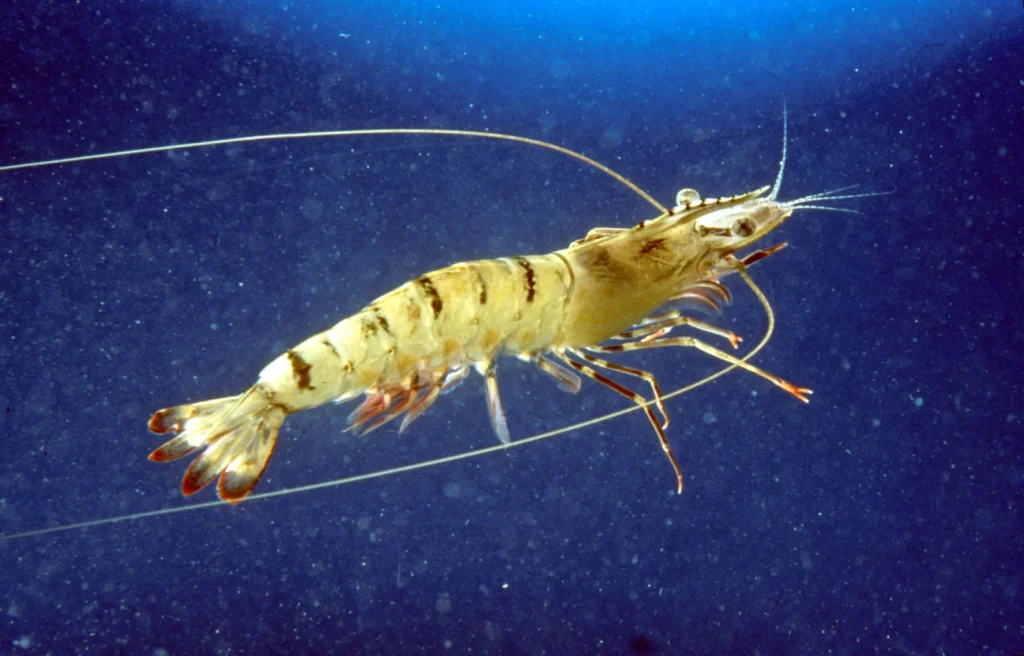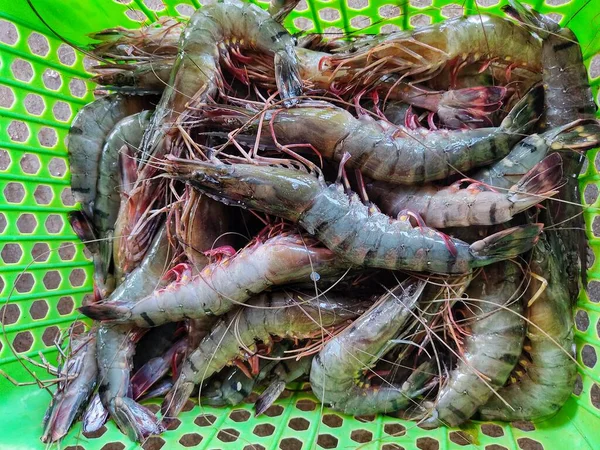Tiger shrimp (Penaeus monodon) is a large species of sea shrimp, which is characterized by a characteristic dark shell with light stripes resembling tiger color. This shrimp is an important object of aquaculture and commercial catch, as it is used for fishing and fishing. the meat is tender, juicy and highly appreciated in gastronomy.

🔍 Main features of the view:
✔ The largest commercial shrimp
✔ Predator and active swimmer
✔ High growth rate-an ideal breeding facility
Classification
🔬 Scientific classification:
✔ The Kingdom: Animals (Animalia)
✔ Type: Arthropods (Arthropoda)
✔ Class: Crustaceans (Malacostraca)
✔ Row: Decapod crustaceans (Decapoda)
✔ Family: Penaeidae (penae shrimp)
✔ Gender: Penaeus
✔ View: Penaeus monodon
📌 Interesting!
The tiger shrimp has many relatives, including white shrimp (Penaeus vannamei)which is also used in aquaculture.
Appearance and dimensions
📏 Main Features:
• Body length: to 36 cm
• Weight: 150-300 g, sometimes up to 450 g
• Life span: 1.5-3 years
🎨 Color scheme:
• Dark Carapace With bright light stripes (tiger pattern)
• The color can vary from blue-green to reddish-brown
🔍 Body type:
• Elongated body with a strong carapace
• 10 legs, of which the first pair is used to grab food
• Long mustache-the main sensory organ
• Powerful tail that allows you to swim fast
📌 Interesting!
In tiger shrimps, females are much larger than males.

Living environment
🌍 Where does tiger shrimp live?
• Indian and Pacific Oceans
• Tropical and subtropical waters from Africa to Australia
• Asian Coast (Indonesia, Vietnam, Thailand, Philippines, China, Japan)
🏝 Living conditions:
• Depth: 0.5-150 m
• Water temperature: 27–30°C
• Wednesday:
* Coastal areas
* Mangrove forests
* Clay and sandy soils
📌 Interesting!
This species can migrate between sea and fresh waterwhich makes it resistant to environmental changes.
Lifestyle and behavior
🦐 How does tiger shrimp live?
• Nocturnal predator - hides in the sand during the day
• Solitary lifestyle, but gathers in groups during migrations
• It is capable of fast jerks thanks to its powerful tail
• Perfectly oriented in space thanks to the sense of smell and mustache
📌 Interesting!
Tiger prawn has a defensive reaction-an instant jerk backwhen something touches her.

Food
🍽 What does tiger shrimp eat?
• Shellfish and small crustaceans
• Marine worms and fish larvae
• Algae and organic residues
🔍 Hunting methods:
• Actively looking for food at the bottom
• Rakes the soil and catches small animals
• It can attack weaker relatives
📌 Interesting!
Tiger prawns can be consumed by cannibalismif there isn't enough food.

Reproduction
👶 How does tiger shrimp breed?
• Females lay up to 1 million eggs
• Larvae develop in the water column
• Young individuals settle to the bottom after several molts
• Fast growth - up to 30 cm in 6 months
📌 Interesting!
Just 0.5% of larvae they survive to adulthood because of predators.
Human interaction
⚠ Is it dangerous for humans?
• Absolutely safe
• Highly appreciated in cooking
🍽 Tiger shrimp in gastronomy:
* Used for grilling, soups, sushi, pasta
* Known for its juicy texture and sweet taste
🎣 Aquaculture and fisheries:
* Main object farming in Thailand, Vietnam and China
* Caught with nets and traps
📌 Interesting!
The price of tiger prawns can reach up to $ 40-50 per kilogram!
Interesting facts
📌 Top 5 Facts about Tiger Shrimp:
1️⃣ One of the largest shrimp in the world
2️⃣ It can change color depending on the environment
3️⃣ Its larvae go through several stages before becoming adults
4️⃣ It is considered a delicacy in many countries
5️⃣ It is bred in artificial conditions for industrial catch
Conclusion
Tiger shrimp (Penaeus monodon) – a unique sea creature, which combines large size, interesting behavior and high gastronomic value.
Her fast growth and endurance they make it one of the most promising objects of aquaculture. Despite an active commercial catch, control of breeding helps maintain its population.
This sea giant it will always remain an important element of world cuisine and aquaculture!
